STRATCLU, the ‘entrepreneurial’ strategy process of the German ‘spitzen’-cluster (leading-edge cluster) MicroTEC Südwest meets the needs of multi-actor, multi-governance-level and multi-sector research and innovation (R&I) policies. The forwardand outward-looking process exemplifies how a broad range of regional R&I actors can share and utilise strategic knowledge to identify joint priorities for longer-term, synergistic R&I investments and collective actions, and focus their diverse competences in microsystems as a general purpose technology to tackle societal challenges and enter future markets globally.
Research & Innovation Programmes Addressing Challenges of the 21st Century
In line with a more systemic understanding of research and innovation (R&I) policy (OECD 2005), the respective support programmes introduced the perspective of global, societal challenges to be tackled by scientific and technological breakthroughs. The German government, for instance, launched its High-Tech Strategy 2020 (HTS 2020) in 2006 with the aim to make Germany a leader when it comes to solving global challenges (climate/energy, health/nutrition, mobility, security, communication) and providing convincing answers to urgent questions of the 21st century. The German Strategy for Internationalisation of Science and Research stresses that, to realise optimised solutions to these challenges, it is necessary to leverage science and innovation potential worldwide. In the same vein, the Europe 2020 strategy and its flagship initiative “Innovation Union” aim at refocusing R&I policy on the challenges facing society, and the EU Cohesion Policy 2014-2020 asks the member states and regions to develop innovation strategies for smart specialisation. The ‘entrepreneurial process’ of developing regional innovation strategies for smart specialisation (RIS3) (Foray et al. 2009) focuses on unique regional assets with a view to developing competitive products and services in international markets. If the different RIS3 are developed in alignment with the European context, synergies can be leveraged to further develop the European Research Area.
Against this backdrop, clusters as local nodes of global knowledge flows and ‘innovative hot-spots’ in globalised value chains provide the base not only for developing technological answers to the urgent problems of the 21st century but also for producing adequate, strategic knowledge for cutting-edge (and trans-regionally aligned) R&I programming (Sautter/Clar 2008). In 2007, the German government launched the ‘spitzen’-cluster competition as the flagship of the HTS 2020 and cornerstone of the national Strategy for the Internationalisation of Science and Research to support the development and implementation of future-oriented R&I strategies. The overall objective is to tackle key societal challenges and thus position the ‘spitzen’-clusters in the global knowledge economy and make them attractive for talented, creative people as well as innovative companies and forward-looking investors. MicroTEC Südwest in Germany’s south-western state of Baden-Württemberg and one of the winners of the competition started a forward-looking cluster strategy process inspired by the Strategic Research Agenda of the European Technology Platform on Smart Systems Integration (EPoSS), and focused on the priority fields of the German HTS 2020: climate/energy, health, mobility, security, communication.
‘Spitzen’-Cluster Strategy on Smart Microsystems Technology (MST) Solutions to Global Challenges
The MicroTEC Südwest cluster, closely linked withneighbouring parts of France and Switzerland, covers the competences needed along the value chain of the GPT (General Purpose Technology) miniaturised systems: from basic research, for instance in nano-, micro- or bio-technologies, to the design and production of smart microsystems, to the integration of such systems in ‘intelligent’ products (e.g. driver assistance systems in cars or point-of-care diagnostic systems in the healthcare sector). Besides global players like Bosch and Roche Diagnostics, the 350 actors involved in the cluster include top universities and research centres, and many small and medium-sized enterprises.
In order to focus the different competences on synergistic R&I investments, a ‘spitzen’-cluster proposal was developed with two application-oriented priorities to generate breakthrough innovations in global lead markets (health and mobility) and two technology-related priorities to develop and produce next generation microsystems for future fields of application. The funds (50-50 public-private) for implementation amount to nearly 90 million EUR, from national and regional ministries, regional bodies and enterprises.
The MicroTEC Südwest proposal was highly evaluated in the competition not only for the quality of its research projects but also for its additional structural projects on innovation support, qualification and recruitment, internationalisation and the STRATCLU strategy process.
From Ad-hoc Strategy Building to Systematic Learning Cycles
The STRACLU project has been set up to advance the successful ‘spitzen’-cluster project and to broaden and consolidate the participative decision-making process in the cluster. Stakeholder groups (cluster board, strategy panel etc.) have been established and strategic policy intelligence (SPI) tools combined in a learning cycle with three main stages:
· Stock-taking (incl. outward-looking): Review of cluster position in the global context (major SPI tools: audit, evaluation, benchmarking)
· Forward-looking: Longer-term perspectives & priorities (foresight, impact assessment)
· Action-planning: Roadmaps with milestones and specific joint actions (roadmapping, GOPP)
An operational learning cycle has been put in place as well to monitor the implementation of the joint actions. With these learning cycles, STRATCLU both guides individual actors in their strategic decision-making and develops MicroTEC Südwest itself into a learning ‘smart innovation system’, which continuously
· identifies global challenges and promising future markets,
· formulates long-term and ‘open’ RTDI strategies for smart MST-based solutions,
· builds local competences and capacities, looks for strategic partners along global value chains,
· encourages key local and global actors to join forces in common strategies and thus
· ensures long-term success in global competition.
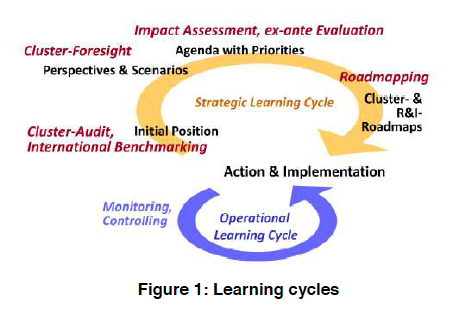
MicroTEC Südwest AGENDA 2020+
Related to the national priorities of the HTS 2020, and based on detailed science and market analyses, the investigation and discussion of global trends and an assessment of their specific impacts along the strategic learning cycle (fig. 1), the MicroTEC Südwest strategy panel prioritised a joint AGENDA 2020+ with the following five major crosscutting priority fields for R&I, and an additional focus on cross-industry innovation and education and training.
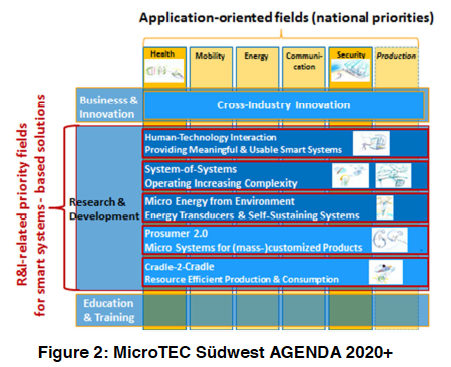
These five R&I-related priority fields for smart MSTbased solutions address and leverage synergies across all key application fields (in particular with regard to the national priorities of the HTS 2020).
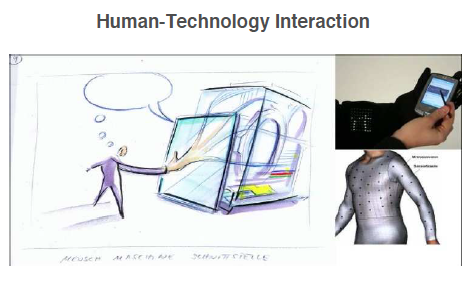
This topic was assessed as the most relevant. The renaming of the microsystems technology (MST) division of the German Ministry of Education & Research into Demographic Change: Human-Technology Interaction in the context of the German BMBF Foresight Process (Cuhls 2010) underlines the relevance of this issue. The big challenge is to develop smart MSTbased solutions adapted to people’s needs and providing them with real value added.
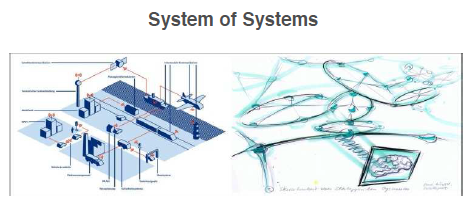
Here, the focus is on the integration of smart systems in superior systems: from smart systems to smart things like cars to comprehensive systems such as the transportation system (cf. cyber-physical systems or Internet of Things). The big challenge is to handle the increasing complexity that comes with a higher degree of system integration.
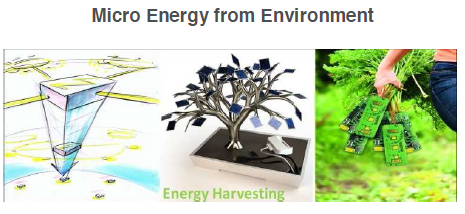
Energy converters (e.g. important for energy harvesting) and storage along with self-sustaining systems are preconditions to realise the systems-of-systems approach and to develop mobile and functional intelligent devices.
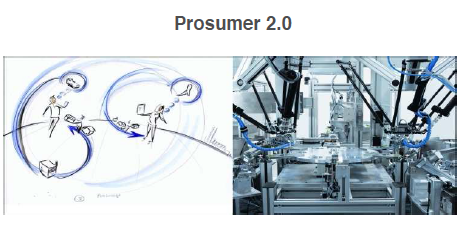
In the future, the production of smart systems and things has to be closely related to mass-customisation in order to provide the users (consumers) with wellcustomised and cost-efficient solutions.
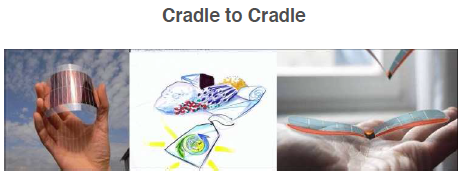
Resource efficient production and consumption systems, total life cycle assessment (including the recycling stage) etc. are important issues in this priority field.
Roadmaps to Tackle Societal Challenges
Continuing along the strategy cycle, the AGENDA 2020+ provides the strategic framework for roadmapping exercises at multiple levels: Cluster actors develop R&I roadmaps towards market-focussed and MST-based breakthrough innovations to tackle societal challenges in prioritised joint action areas (e.g. in personalised medicine, factories of the future or green cars). These roadmaps will be aligned with other roadmaps, for instance of the European Technology Platforms EPoSS or MINAM, and integrated in the MicroTEC Südwest Cluster Roadmap 2020+, which involves also horizontal support measures like qualification, recruitment etc. and will be communicated to public and private investors (‘agenda setting’). Furthermore, the roadmaps will be transferred to SMEs in the cluster to support them in their own longer-term business development and R&I investment strategy.
Taking a Big Step Towards Smart, Sustainable and Inclusive Growth
The participative forward- and outward-looking strategy process in the German ‘spitzen’-cluster MicroTEC Südwest shows successfully how regional R&I consortia can share and utilise strategic knowledge to identify joint priorities for longer-term, synergistic investments and collective actions. By enabling actors to systematically develop future strategies together, to asses them and develop actorspecific, synergistic approaches to successful implementation, the overall risk of longer-term R&I investments can be reduced significantly, for the current participants and for foreign direct investment.
The strategy approach of MicroTEC Südwest meets the needs of (new) future-oriented, multi-actor, multigovernance level and multi-sector R&I policies in manifold ways. First, it focuses local competences in a general purpose technology on tackling grand societal challenges with the aim of entering global markets. Second, it strives to attract complementary competences and foreign direct investment from other regions, and to work together with strategic partners along global value chains. Third, it combines ‘bottom-up’ with ‘topdown’ activities by taking up and assessing external inputs from a regional perspective: for instance, the German High-Tech Strategy or the BMBF Foresights, European and other R&I policies and strategy processes, such as Joint Programming Initiatives or the Japanese NISTEP Delphis, respectively. Against this backdrop, the MicroTEC Südwest approach can be seen as a test bed for an ‘entrepreneurial process’ suggested by the European Commission to develop regional smart specialisation strategies and to capitalise on them to advance the European Research Area.
To fully benefit from the regional assets across Europe, strategic capacity building has to be strengthened, not only in Europe’s world-class clusters. If more clusters such as MicroTEC Südwest develop and align their longer-term strategies in order to raise, structure and optimise overall private and public (EU, national, regional) investments, with one focus on pooling forces and jointly tackling common challenges, a big step could be taken towards smart, sustainable and inclusive growth.

Download: EFP Brief No. 232_STRATCLU.
Sources and References
Cuhls, K. (2010): The German BMBF Foresight Process, in European Foresight Platform, EFP Brief No. 174.
Foray, D., David, P.A. and Hall, B. (2009): “Smart specialisation: the concept”, in Knowledge for Growth: Prospects for science, technology and innovation, Report, EUR 24047, European Union.
OECD (2005): Governance of Innovation Systems: Volume 1: Synthesis Report, OECD Publishing.
Sautter, B., Clar, G. (2008): Strategic Capacity Building in Clusters to Enhance Future-oriented Open Innovation Processes, in The European Foresight Monitoring Network, Foresight Brief No. 150.
Web links for more information:
www.microtec-suedwest.de
www.smart-systems-integration.org
www.minamwebportal.eu
www.era.gv.at/space/11442/directory/11767.html
www.steinbeis-europa.de/rsi.html
www.steinbeis-europa.de/stratclu_en.html